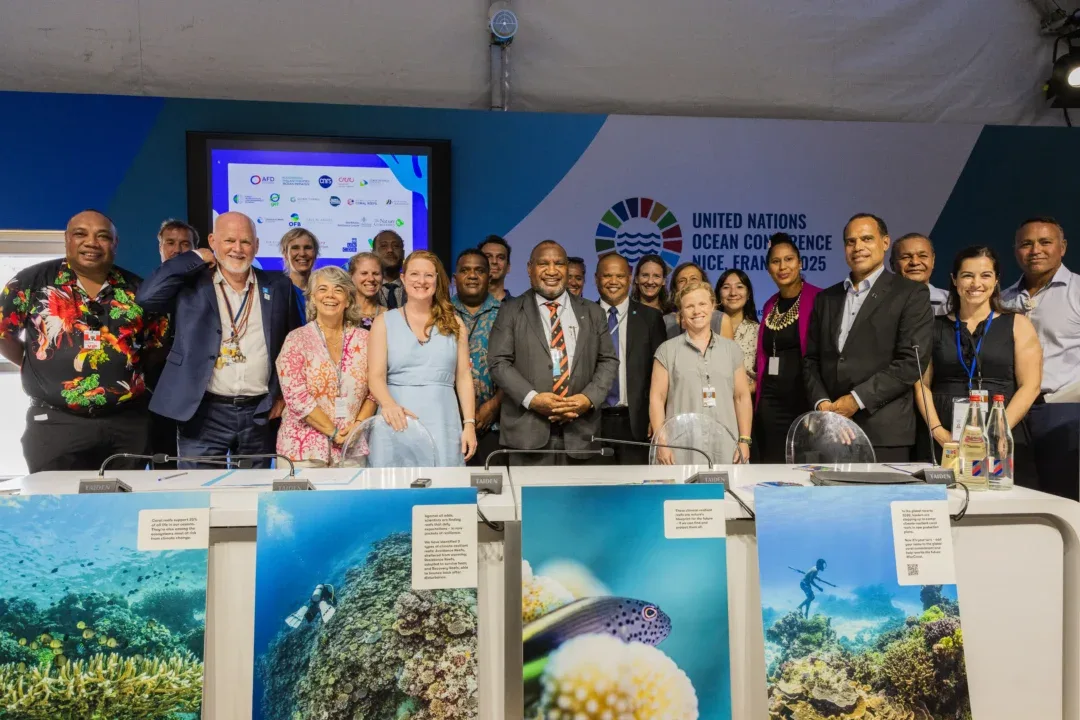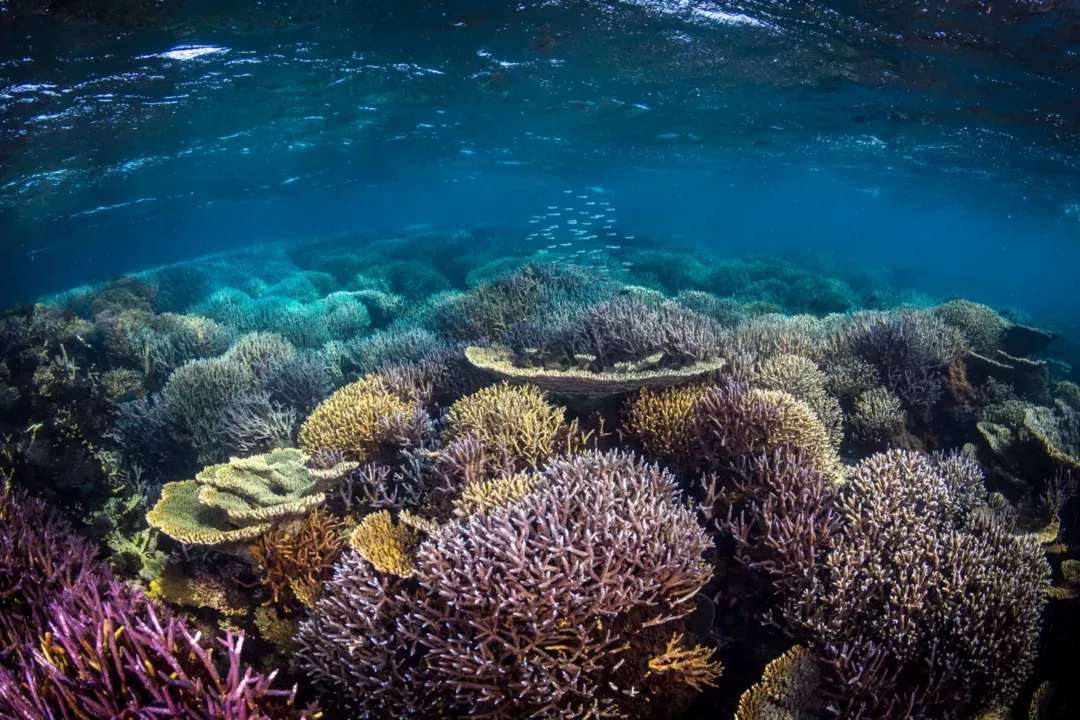At the UN Ocean Conference in France, 11 governments unite to sign a bold new pledge to safeguard coral reefs with the best chance of long-term survival in the face of climate change
Papua New Guinea, WCS, WWF, and TNC co-hosted a landmark event at UNOC3 to catalyse science-based action for climate-resilient reefs and communities
This is the first political commitment to protect climate-resilient coral reefs ahead of the 2030 global biodiversity targets.

At the Third United Nations Ocean Conference (UNOC3), a growing coalition of countries and partners launched and signed a high-level global commitment to protect climate-resilient coral reefs, setting a new bar for ocean action in a warming world.
Championed by WCS alongside the Government of Papua New Guinea, WWF, and TNC, this voluntary commitment prioritises coral reefs with the greatest potential to survive climate change – and to serve as the foundation for future reef recovery, biodiversity conservation, and human wellbeing. At UNOC3, signatories include the Bahamas, Belize, France, Indonesia, Madagascar, Palau, Panama, Papua New Guinea, Solomon Islands, Tanzania, and Vanuatu.
“Palau is home to some of the most diverse and climate-resilient coral reefs on Earth – ecosystems that are central to our culture, economy, and food security,” said Palau’s President Surangel S. Whipps, Jr. “Our reefs host over 400 species of corals and more than 1,300 species of reef fish. We’ve long worked to protect them, relying on cultural knowledge and practices like the bul and scientific data. But even our reefs are under growing threat from climate change and human pressures. Palau proudly joins this global commitment to protect climate-resilient coral reefs. As a nation on the frontlines of climate change, we know that safeguarding coral reefs is essential not only for biodiversity but for the survival and well-being of our people. This commitment reinforces our national priorities and connects them to a shared global vision for resilient ocean futures – one that ensures healthy oceans for future generations. We urge the international community to act decisively – with science, with urgency, and with equity.”
The signed commitment pledges governments to:
- Identify and prioritize climate-resilient reefs in national strategies to implement area-based conservation commitments, including “30×30”, and climate strategies
- Integrate reef protection into National Biodiversity Strategies and Action Plans (NBSAPs), Nationally Determined Contributions (NDCs), and development plans
- Enact and enforce policies to reduce local pressures on coral reefs, including destructive fishing, pollution, and unsustainable development
- Implement national coral reef monitoring and reef action plans
- Ensure community leadership, equity, and local knowledge are at the center of solutions
At the heart of the effort is new global science led by WCS, including the upcoming “50 Reefs+” analysis, an improved high-resolution global map of climate-resilient coral reef locations worldwide. Spanning over 8.7 million reef pixels and powered by WCS’s MERMAID platform, this new analysis integrates underwater observations of live hard coral cover and coral life histories with comprehensive climate, environment, and human pressure. These new maps will help governments, funders, and the private sector make smarter, more targeted conservation decisions about which coral reefs to prioritize for urgent protection.
“This is more than a commitment – it’s a lifeline for coral reefs and the communities that depend on them,” said Dr Emily Darling, Director of Coral Reef Conservation at WCS. “We are combining cutting-edge science with real political will to act before these ecosystems pass a point of no return.”
The launch event also spotlighted early financial and technical support from key partners, including Bloomberg Philanthropies, the Global Fund for Coral Reefs, the Global Environment Facility, and the International Coral Reef Initiative.
“Coral reefs support more than a quarter of ocean life and billions of people worldwide,” said Melissa Wright, who leads the Bloomberg Ocean Initiative at Bloomberg Philanthropies. “With their long-term survival at risk, the bold country commitments in this pledge are a powerful step toward protecting them. Through the Bloomberg Ocean Initiative, we’re proud to support this ambitious policy action and the science behind the forthcoming 50 Reefs+ to ensure these vital ecosystems endure.”
The commitment will be registered on the UN Voluntary Commitments Platform, and the commitment and partnership will remain open for additional countries to join ahead of upcoming conferences in 2025: wcs.org/coralcommitment
“The Nature Conservancy has been working globally to protect coral reefs for over forty years and has pioneered approaches to identify climate resilient reefs and get the latest science and tools into the hands of reef managers,” said Dr. Lizzie McLeod, Global Ocean Director at The Nature Conservancy. “Leveraging science and partnerships, we will continue to work alongside governments, communities, businesses, and partner NGOs like WCS to secure a healthy, resilient future for coral reefs and the communities that depend upon them.”
Source: Press release

